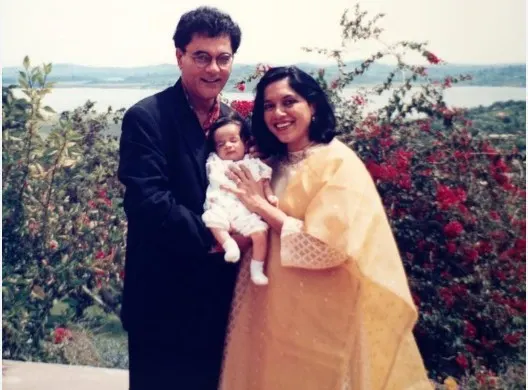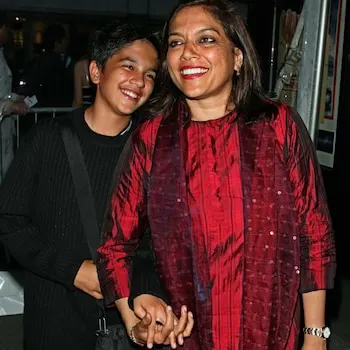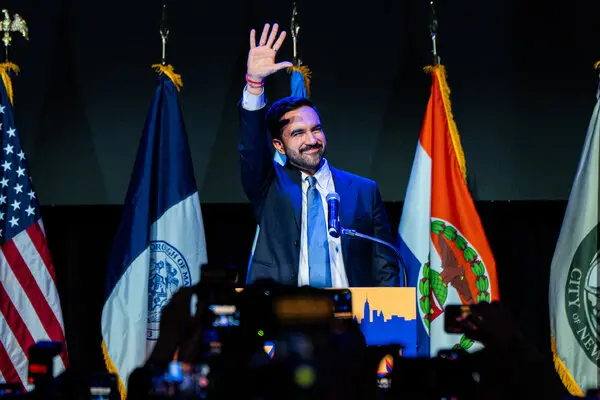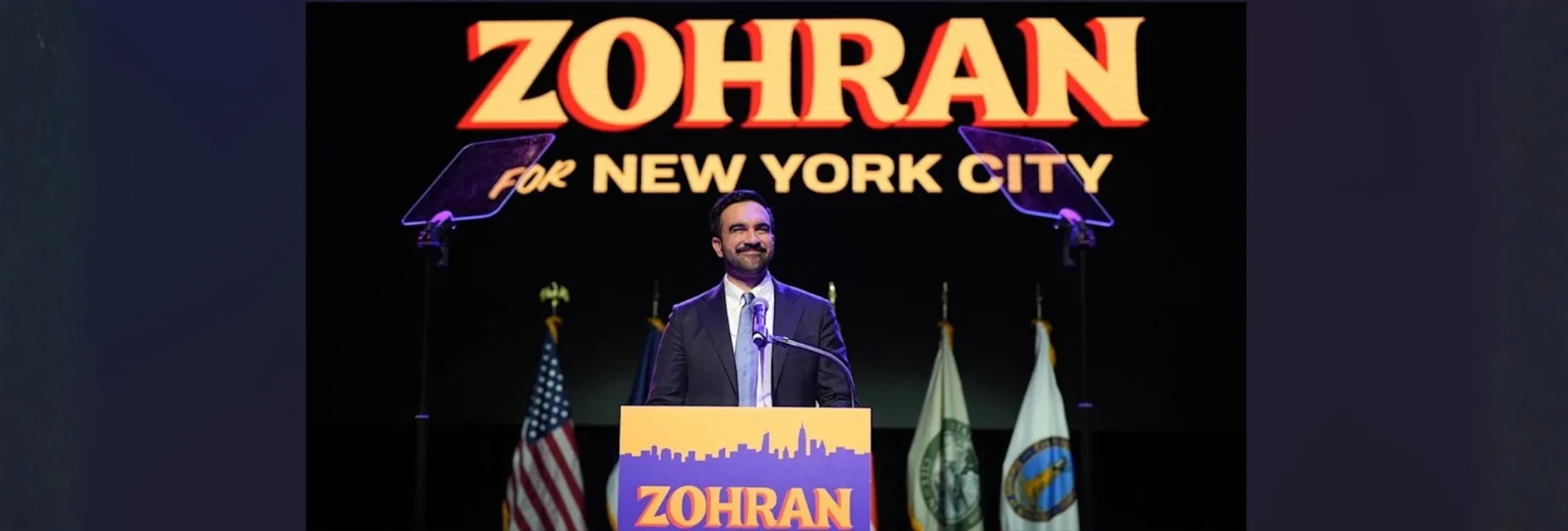(November 6, 2025) Beginning with Deewar and ending with Dhoom, the first South Asian mayor of NYC Zohran Mamdani turned his mayoral election journey into a symphony of activism and artistry with a Bollywood-infused reimagining of New York’s democratic spirit.
The night air on November 4, 2025 in Brooklyn carried an unusual soundtrack for a political rally in the United States as the pulsating beats of Dhoom Machale, the title track from the 2004 Bollywood blockbuster Dhoom began to play at the end of Zohran Mamdani’s first speech after being declared victor. It appeared a fittingly cinematic finale to a campaign that had already rewritten history.
As the music swelled, the 34-year-old Democrat socialist waved to a roaring crowd that had just witnessed him make history as the youngest and first South Asian and Indian-American mayor of New York City. Still standing on stage, Mamdani was soon joined by his wife, animator and illustrator Rama Duwaji, for a warm embrace, followed by his parents, acclaimed filmmaker Mira Nair and academic Mahmood Mamdani.
Minutes before the finale of his victory speech, Zohran Mamdani had spoken words that stirred both history and emotion. Quoting Jawaharlal Nehru, he said, “A moment comes, but rarely in history, when we step out from the old to the new…Tonight, we have stepped out from the old into the new.” In invoking Nehru, Mamdani offered both a nod to his Indian heritage and a statement of purpose signaling that his win wasn’t just political, but profoundly symbolic for a city built by immigrants and dreamers.
A campaign that had a touch of Bollywood
He had infused a touch of Bollywood drama into his campaign with a video that went viral for its freshness, wit and cinematic flair. Using a clip from Deewar, the 1975 Amitabh Bachchan classic, he cleverly cast his opponent’s voice as Bachchan’s iconic line: “Aaj mere paas building hai, property hai, bank balance hai… kya hai tumhare paas?” (“I have buildings, property, a bank balance… what do you have?”). Then smilingly he delivered his punchline: “Aap.” — You have yourself.
It was playful, disarming, and deeply personal, the kind of moment that captured his campaign’s essence. Mamdani wasn’t promising to fix the city for the people; he was asking them to help remake it with him.
By the time election night arrived, that spirit of collective ownership had turned into a movement. Mamdani had done what few thought possible, defeating two political veterans, former New York State Governor Andrew Cuomo and Republican nominee Curtis Sliwa, in one of the most fiercely contested mayoral races in recent memory.
The making of a global citizen
To understand Mamdani’s worldview is to follow the map of his family’s migrations. Born in Kampala, Uganda, in 1991, he grew up surrounded by stories of exile and endurance. His father, Mahmood Mamdani, a Ugandan scholar of Indian descent, lived through Idi Amin’s expulsion of Asians in the 1970s. His mother, Mira Nair, left India to pursue filmmaking and went on to become an internationally celebrated director who explored the complexities of identity and migration.
The two met in Kampala while Nair was researching Mississippi Masala, her 1991 film about the Indian community in Uganda. Out of that encounter came a marriage, and eventually, a son whose life would embody the crossroads of intellect and art, displacement and belonging that each represented.

Zohran Mamdani with his parents, few months after his birth
Zohran’s early life was steeped in creativity. He recalls spending childhood days on film sets and even helping select music for Queen of Katwe. Watching his mother succeed as an Indian woman in Hollywood shaped his belief in representation. “She has this mantra — if we don’t tell our own stories, no one else will,” he has said. That lesson would later translate into his politics: if communities aren’t heard, he would help give them a voice.
Between worlds and causes
Mamdani’s childhood moved across continents from Uganda to South Africa and eventually to New York. In school, he found ways to bridge his cultural worlds, rapping to American beats one day and singing Hindi film songs the next. At Bowdoin College in Maine, where he studied Africana Studies, his interests turned toward activism. He co-founded a chapter of Students for Justice in Palestine and began exploring how global struggles for justice connect. After graduation, he returned to Queens and took up work as a foreclosure prevention counselor, helping immigrant families facing financial distress.
Politics came later. First through volunteering on local campaigns, then through running one of his own. Along the way, he tried his hand at music under the moniker Mr. Cardamom, performing songs about South Asian identity in New York. It wasn’t fame he was after, but connection. “If you can sell CDs on the street,” he once said, “you can talk to anyone about anything, even politics.”

Zohran Mamdani with his filmmaker mother Mira Nair when he was a young boy
From street canvassing to city hall
By 2020, New York’s political climate was ripe for new voices. Mamdani ran for a New York State Assembly seat in Astoria and Long Island City, challenging a four-term Democratic incumbent. His campaign was built on direct engagement with thousands of door knocks, hundreds of community conversations and a promise to fight for housing rights, cleaner transit, and better wages.
He won decisively, joining a new wave of progressive leaders reshaping the state’s political map. His record in the Assembly quickly reflected his activist roots. When taxi drivers burdened by crushing debt went on hunger strike, Mamdani joined them on the streets. It was a gesture that helped secure a $450 million city bailout. Later, his Fix the MTA campaign pushed for and achieved free bus routes across several boroughs. He turned protest into policy, belief into blueprint.
A victory steeped in story and symbolism
By the time he announced his mayoral run in 2025, Mamdani was no longer an outsider, but he still ran like one. Powered by small donors, volunteers, and grassroots energy, his campaign revived a kind of democratic idealism that New York hadn’t seen in decades. And when the results came in on that November night, the celebration that followed felt deeply personal, not only for his supporters, but for everyone who saw their own reflection in his journey.

As Dhoom Machale from the 2004 Bollywood film Dhoom played at the end of his victory speech, the hall pulsed with joy. It was a sound of triumph, but also of cultural convergence like an anthem from Mumbai reverberating through Brooklyn, marking the rise of a mayor whose story began in Kampala and came of age in Queens.
For Zohran Mamdani the win appears to be the realization of a vision shaped by migration, justice, and imagination, and a reminder that leadership begins with the courage to see yourself in others.
- Follow Zohran Mamdani on Instagram



